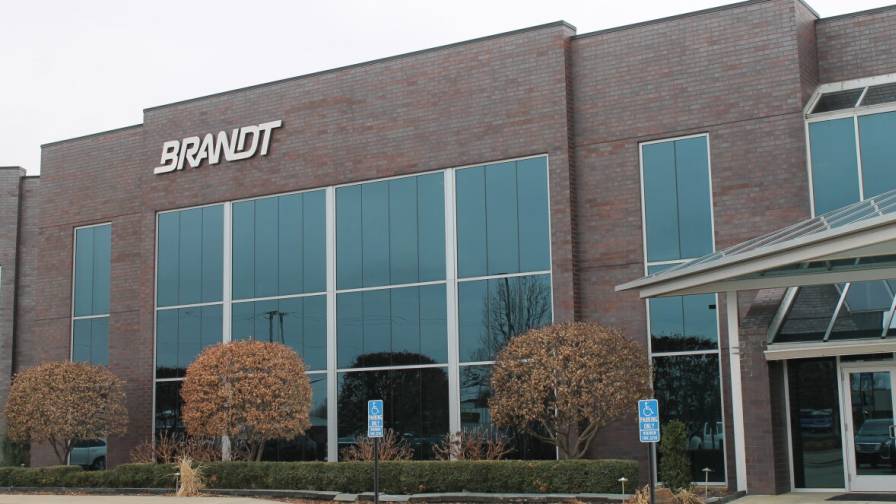Senators Call On Treasury Department To Review ChemChina’s Acquisition Of Syngenta
U.S. Senator Debbie Stabenow (D-MI), ranking member of the U.S. Senate Agriculture Committee, has led a bipartisan letter co-signed by U.S. Senators Chuck Grassley (R-IA), Sherrod Brown (D-OH), and Joni Ernst (R-IA) — members of the Senate Agriculture Committee — calling on the U.S. Department of the Treasury to review China National Chemical Corporation’s (ChemChina) proposed acquisition of Syngenta for any potential effects on U.S. national security and the American food system.
“While this Committee has not reached any conclusions regarding the proposed purchase of Syngenta by ChemChina, we believe that any foreign acquisition of an important U.S. agricultural asset should be reviewed closely for potential risks to our food system,” the Senators said. “It is not unreasonable to suggest that shifts in company governance; operational strategy; or financial health — particularly in light of the magnitude of this leveraged transaction — could have consequences for food security, food safety, biosecurity, and the highly competitive U.S. farm sector as a whole.”
Pointing to growing investment from abroad in U.S. agriculture, the Senators also urged Treasury Secretary Jack Lew to include both the United States Department of Agriculture and the U.S. Food and Drug Administration on the Committee on Foreign Investment in the United States (CFIUS) when reviewing foreign acquisitions of major U.S. agricultural assets.
The full text of the letter to Treasury follows.
Dear Secretary Lew:
As members of the Senate Committee on Agriculture, Nutrition, and Forestry, we write to you regarding China National Chemical Corporation’s (ChemChina) proposed acquisition of Syngenta, a Switzerland-based crop protection and seed company with significant operations in the United States. Despite the two companies reported intent to voluntarily file for review with the Committee on Foreign Investment in the United States (CFIUS), chaired by the U.S. Department of the Treasury, we respectfully request that CFIUS exercise its authority to review this transaction to assess any potential ramifications the purchase may have for American national security, with a specific focus on the potential effects on food security and the safety of our food system.
There is shared sentiment among lawmakers, military officials, and everyday Americans that protecting the safety and resiliency of our food system is core to American national security. Notwithstanding this widely held conviction, the composition of the CFIUS today does not include representation from the U.S. Department of Agriculture (USDA) and the Food and Drug Administration (FDA) as formal components of its process for reviewing foreign investments in critical American assets, including agricultural assets.
Constituents have approached us with concerns over this transaction, citing the 2013 CFIUS review of the Shuanghui-Smithfield acquisition. The most common reflection on that experience is that growing foreign investment in U.S. agriculture — and the prognosis of more to come — should be met with a careful review process that captures the issues most relevant to safeguarding the American food system going forward.
To that end, we believe that it is imperative that both the USDA and the FDA be included in the CFIUS for purposes of reviewing and making decisions on this proposed acquisition by ChemChina.
While this Committee has not reached any conclusions regarding the proposed purchase of Syngenta by ChemChina, we believe that any foreign acquisition of an important U.S. agricultural asset should be reviewed closely for potential risks to our food system. It is not unreasonable to suggest that shifts in company governance; operational strategy; or financial health — particularly in light of the magnitude of this leveraged transaction — could have consequences for food security, food safety, biosecurity, and the highly competitive U.S. farm sector as a whole.
The risk of negative outcomes is heightened to the extent that an acquired U.S. agricultural asset becomes in some part governed by a foreign government with clear strategic interests. In fact, the potential for unpredictable behavior from global farm sector participants is a great challenge for the United States as the importance of trade to American agriculture continues to grow and food systems become more integrated. For instance, nonmarket behavior due to state-ownership could lead to inconsistent or seemingly arbitrary treatment of U.S. farm products in key export markets, particularly when company governance includes governments of countries with which the United States exchanges a high volume of trade.
We support the mission of CFIUS to safeguard our national security. At the same time, it is important that the tools and processes used to review foreign investments in critical U.S. assets accurately reflect the full range of national security challenges our country faces today and in the future. Thank you for your consideration of our request and views on this important matter.






